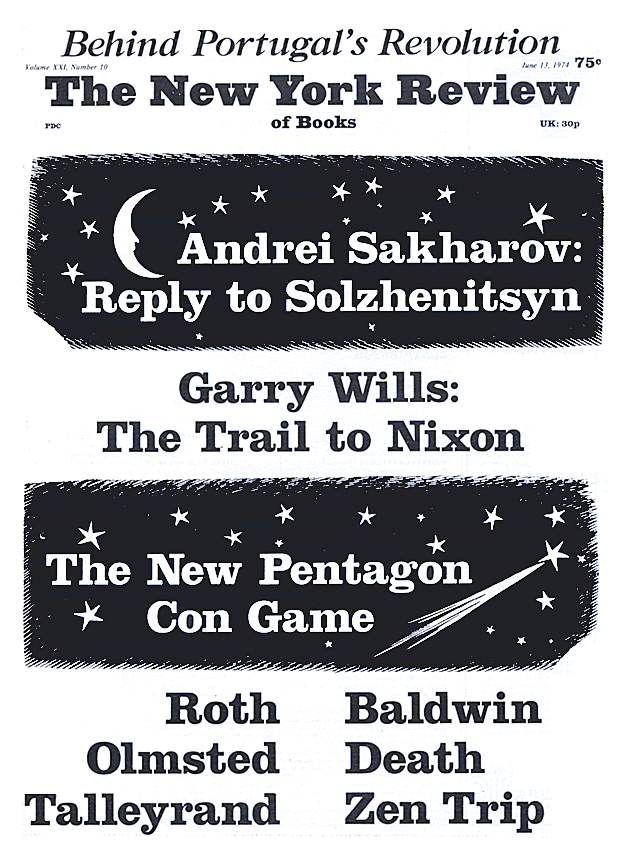In response to:
Purgatorio from the April 18, 1974 issue
To the Editors:
I must say some words in defense of Lezama Lima and Paradiso, both of which I feel have been savaged a little, not too much, but just a little and enough to call for some kind of response, which seems to be the norm with NYR [NYR, April 18]. I would not have been so upset had the onslaught been in the form of tropical capoeira, but it comes on more like northern hemisphere fisticuffs, the direct search for the wound. I am happy to be brave and helpless and patient, as Professor Michael Wood has described my work of translation; it should be such, it needs to be such with Lezama. As a side note, many times I am also a restless, competent coward, which is as it needs to be under other circumstances. Translation, of course, is impossible, so let us leave that part at that.
The constraint that causes this letter comes from the easy references to writers close to me. Lezama is called pompous for using Dante’s Paradiso as title. It is there, of course, but what about the paradiso of that other Italian (putative), Columbus, who used the word to describe Cuba. With that starting point, we can follow along, back and forth, between Lezama’s novel and Columbus’s letters. José Arrom has figured the whole thing out at great pains. The references are scattered throughout (the manatee) and, for Lezama, rather evident. I think Professor Wood should have cast about a bit more. We all know about JC references, that seems to be a part of us now, Joyce and “Cross your legs, J.C., I only got one nail.”
A continuing annoyance to me is Mr. Wood’s insistence on his own translation of the title of Cien años de soledad as “A Hundred Years of Solitude.” Great pains went into the solving of that ambiguous counting-word as it is in Spanish. But I think that as one finishes the book and, thereby, the manuscript of Melquíades, he senses at once that these are very specific and measured years, the stuff of a clock-century, a sore thumb clutched in the fist of the other Time. There may be even more to it than that if we start with named centuries (by numbers, as we have to, as they have been given to us). My version does have some authenticity to it since I talked it over with García Márquez (Gabo knows much more English than he likes to let on to), and the One Hundred Years is what he felt best said his thoughts.
I hope that Michael Wood will not think I have brought my academic rapier here to these pages to play the usual Tybalt; I am more Mercutio. He has done noble, as they say, by Latin American writing, and I do wish he would take a closer look at Paradiso lest he be left wondering like Gide (there ought to more heroes named AG).
Gregory Rabassa
The City University of New York
New York, New York
Michael Wood replies:
I really wasn’t looking for the wound. I confess I missed the references to Columbus, but I don’t think I should have been any happier with Paradiso even if I had found them. I don’t doubt the book’s scholasticism, I don’t doubt the intricacy and multiplicity of its allusions; what I doubt is its life as literature.
I’m sorry about the hundred years. It’s not a question, though, of my insisting on my own translation in preference to Mr. Rabassa’s, since I have never read Mr. Rabassa’s version of the book. When I write “A Hundred Years of Solitude” I am simply alluding, in English, to a Spanish text, not offering a rival form of the title. “A Hundred Years” strikes me as a bit casual; “One Hundred Years” as rather too solemn and emphatic. But then translation, as Mr. Rabassa says, is impossible. I’m grateful to him for doing the impossible so often and so well.
This Issue
June 13, 1974


